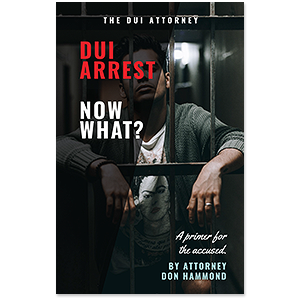
I want readers to understand that getting charged with a DUI is not the end of the world—in fact, it’s not even the end of the process. I also want them to understand that the government is not always right. Despite the government’s massive amount of resources and bought-and-paid-for non-peer-reviewed studies, there are problems with their processes and we should be skeptical. In many ways, DUI is a political crime. The vast majority of DUIs are victimless crimes (although there is a small percentage of cases wherein someone other than the driver does get injured, and those are certainly incredibly unfortunate cases). Regardless of the circumstances of a DUI charge, everyone deserves a defense, and it is the government's obligation to prove that someone is guilty beyond a reasonable doubt; convincing 12 jurors of this can be a difficult task. Our system is founded on the principle that it's better to let 100 guilty men go free than to convict one innocent person. It's supposed to be hard for the government to get a conviction.
I want readers to understand that there is so much behind the veil in a DUI case, and there is hope. If we end up taking a plea deal, we can likely minimize the consequences and make the terms run as smoothly as possible, and at the end of it all, we can go back and dismiss the case. This is because California allows for expungement, which is a dismissal under California Penal Code section 1203.4. This statute allows us to retroactively have the conviction set aside, have a plea of not guilty entered, and get the case dismissed. A DUI conviction is certainly not a “marked-for-life” type of situation.
In other cases, we're able to convince the prosecutors to dismiss the case or influence the process in a way that prevents the case from being filed in the first place. If there is no conviction, then we can have the arrest record sealed under Penal Code Section 851.91. This will make it so that the client can legally answer “No” to the commonly-encountered question, “Have you ever been arrested?” There are always things to be done—even if a case was never filed in court. The purpose of this book is to share all of this information with people, help them understand why there is so much to unpack in every DUI case, and remind them that there is always hope.